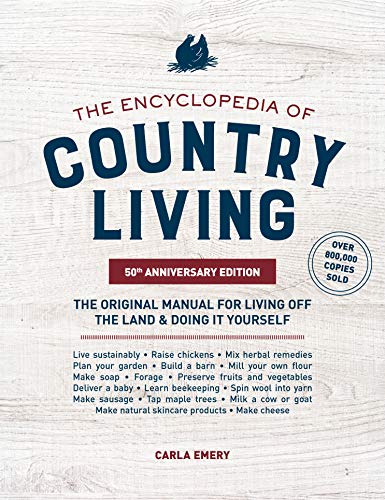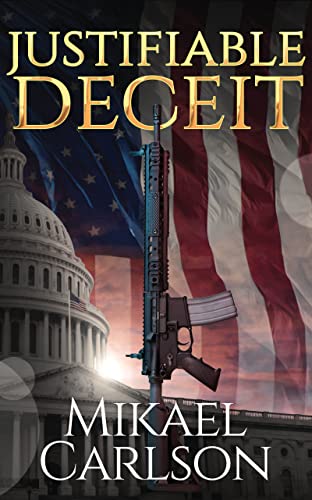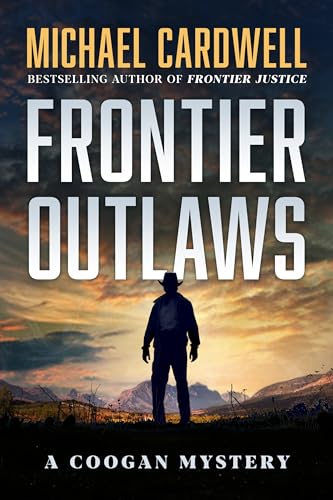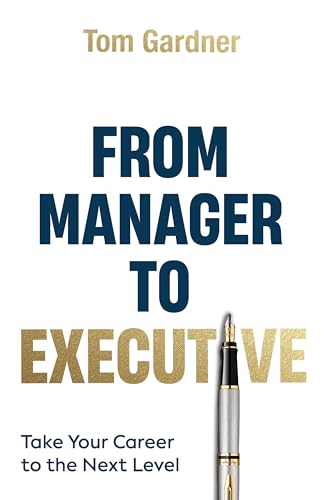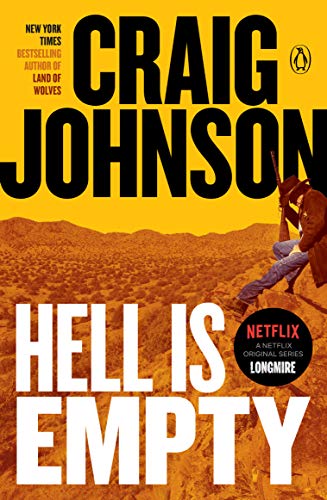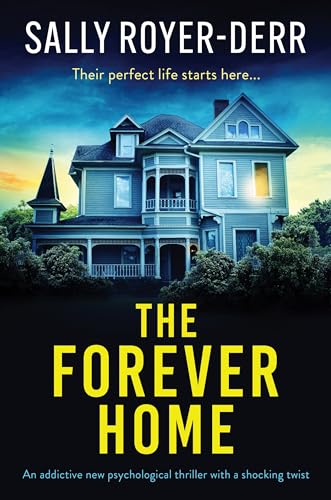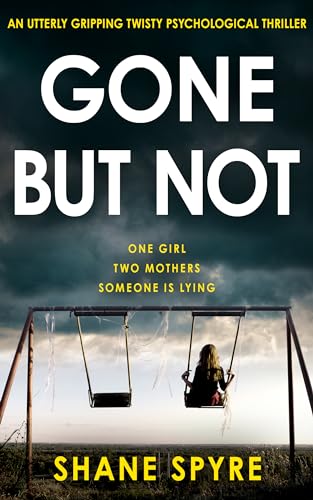Just the other day we announced that Joan Hall Hovey’s The Abduction Of Mary Rose is our Thriller of the Week and the sponsor of thousands of great bargains in the thriller, mystery, and suspense categories: over 200 free titles, over 600 quality 99-centers, and thousands more that you can read for free through the Kindle Lending Library if you have Amazon Prime!
Now we’re back to offer our weekly free Thriller excerpt:
The Abduction of Mary Rose
by Joan Hall Hovey

Following the death of the woman she believed to be her mother, 28-year-old Naomi Waters learns from a malicious aunt that she is not only adopted, but the product of a brutal rape that left her birth mother, Mary Rose Francis, a teenager of Micmac ancestry, in a coma for 8 months.
Dealing with a sense of betrayal and loss, but with new purpose in her life, Naomi vows to track down Mary Rose’s attackers and bring them to justice. She places her story in the local paper, asking for information from residents who might remember something of the case that has been cold for nearly three decades.
She is about to lose hope that her efforts will bear fruit, when she gets an anonymous phone call. Naomi has attracted the attention of one who remembers the case well.
But someone else has also read the article in the paper. The man whose DNA she carries.
And he has Naomi in his sights.
Reviews:
“…Ms. Hovey’s talent in creating characters is so real, you feel their emotions and their fears. You want to yell at them to warn of the danger . . . and you do! Your shouts fall on deaf ears . . . and you cry!
Alfred Hitchcock and Stephen King come to mind, but JOAN HALL HOVEY is in a Class by herself!…”J.D. Michael Phelps, Author of My Fugitive, David Janssen
“…CANADIAN MISTRESS OF SUSPENSE…The author has a remarkable ability to turn up the heat on the suspense… great characterizations and dialogue…” James Anderson, author of Deadline
“…Can compete with any mystery,suspense novel on the shelves…” Linda Hersey, Fredericton Gleaner, NB
In addition to her critically acclaimed novels, Joan Hall Hovey’s articles and short stories have appeared in such diverse publications as The Toronto Star, Atlantic Advocate, Seek, Home Life Magazine, Mystery Scene, The New Brunswick Reader, Fredericton Gleaner, New Freeman and Kings County Record. Her short story Dark Reunion was selected for the anthology investigating Women, Published by Simon & Pierre.
Ms. Hovey has held workshops and given talks at various schools and libraries in her area, including New Brunswick Community College, and taught a course in creative writing at the University of New Brunswick. For a number of years, she has been a tutor with Winghill School, a distance education school in Ottawa for aspiring writers.
She is a member of the Writer’s Federation of New Brunswick, past regional Vice-President of Crime Writers of Canada, Mystery Writers of America and Sisters in Crime.
For More Titles By Joan Hall Hovey, Please Click Here
And here, for your reading pleasure, is our free excerpt:
Chapter One
1982
The teenage girl hurried along the darkening street, head down in a vain attempt to divert attention from herself as she headed for her bus stop, which was still over a block away. The car behind her was a soft growl in the still, warm air.
It was mid-June, only two weeks till school closed. The air was fragrant with the smell of lilacs that grew here and there along the street. She wore a jean skirt and white cotton shirt, and yet she felt as exposed and vulnerable as if she were naked. She was anticipating the freedom of summer and thinking about spending more time with her new friend Lisa when she became aware of the car following her. She had been thinking maybe she and Lisa would swim in the pond edged with the tall reeds near her house, where she sometimes fished with her grandfather. She’d let grandfather meet Lisa. She knew he would like her. Even if her grandfather didn’t quite trust white people, it would be impossible not to like Lisa.
The growl of the motor grew louder, and she heard the window whisper open on the passenger side, close to her. “Where you goin’ in such a hurry, sweet thing?”
She didn’t turn around, just kept on her way toward the bus stop, one foot in front of the other, as fast as she could go without running. Music thumped loudly from the car radio, pounding its beat into the night. It was not music she would have listened to, not like the music they’d played on Lisa’s tape player tonight anddanced to in Lisa’s room. Lisa had tried to teach her some new steps; it had been so much fun. They had danced to songs by Ray Charles, Stevie Wonder, Diana Ross’ Mirror, Mirror and a bunch more she couldn’t even remember. Lisa had a lot of records.
The music that blasted from the car sounded angry and unpleasant. The car drew up so close to her that she could smell the alcohol the men had been drinking, which mixed with the gas fumes.
The car edged even closer to the curb, and the man said something ugly and dirty out the window to her and his words made her face burn, made her feel ashamed as if she had done something wrong, though she knew she hadn’t. She pretended not to hear, made herself look straight ahead, her eyes riveted on the yellow band around the distant pole that was the bus stop, just up past the graveyard. She kept moving forward, one foot in front of the other, trying not to look scared, praying they would go away. Fear made her heart race.
The day was fast fading, the sky a light mauve, only a sprinkling of stars yet. Soon it would be dark. She was always home before dark. Grandfather would be worried.
A few more minutes and you’ll be at the bus stop, she told herself. Ignore them. But it was impossible to do with the car following so close that the heat from the motor brushed her bare legs, like a monster’s breath.
The car crawled along beside her. She moved as far away as she could get, but the sidewalk was next to none along here and was broken. “Hey sweet thing,” the man said. “You trying to get away from us?” He laughed.
Despite herself, she turned her head and looked straight into the man’s face. He was grinning out at her, showing his square, white teeth, causing her heart to pound even louder than the music. He made her think of the coyotes that sometimes came skulking around grandfather’s house at night hunting for small cats and dogs. No. I am wrong. He is not like the coyotes. They are just being coyotes. It is a noble animal. An evil spirit dwells within this beast. One tied with the most fragile of chains. She could feel him straining toward her, teeth bared. She would not have been surprised to see foam coming from his mouth.
Softly, he said, “Hey, Pocahontas, want a ride?”
Feeling as if a hand were at her throat, she darted a look behind her, praying to see someone—anyone—who might help her, but the street was deserted. She’d left the row of wooden houses behind her a good ten minutes ago and was now at River’s End Cemetery. There was no sidewalk at all here, just the dirt path, a broken curb on her left and the empty field to her right leading up into the graveyard. If a car comes along, she thought, I’ll just run right out into the middle of the road and flag it down. But none came.
She visualized herself safely inside the bus and on her way home to Salmon Cove, to her grandfather’s small blue house on the reservation. She would tell him all about Lisa, her new best friend from school. Her grandfather would smile at her, and be pleased for her and call her his little Sisup. She fingered the pendant around her neck that he had made for her, a kind of talisman. To keep evil spirits away.
Grandfather didn’t always understand the white man’s world though, and there would be worry on his weathered face because she was not home yet. But she would make them a pot of tea and they would talk, and his worry would be forgotten.
She was still focused on the bus stop, the utility pole marked by its wide yellow band. With the car so close, the thrum of the motor vibrating through her, the bus stop seemed a mile away. She walked faster, a chill sweeping through her body. She was forced now to walk on the slight incline that led up to the graveyard. Only the ruined curb separated her from her tormentors.
A taxi fled past, but she’d been so intent on getting to the bus stop she’d noticed it too late. It had been going so fast, out of sight already: just pinpoints of tail lights in the distance, then nothing.
“Hey, what’s your hurry, squawgirl?”
She gave no answer, swallowed, and kept going. When the man did not speak for several minutes, she became more frightened by his silence than his talk. The boys at school sometimes called her Indian, and other dumb stuff like pretending to be beating on war drums, or doing a rain dance, and though it hurt her feelings and sometimes even made her cry, this was different. The boys thought they were being funny. Not so with this man. She could feel his contempt, even hatred for her, and something else: something that made her mouth and throat dry and her blood race faster. As she continued to put one foot in front of the other on the worn, rocky path edging the graveyard, she was very careful not to stumble and become like the wounded deer under the hungry eye of the wolf; she kept her eyes on the pole with its yellow band. In the darkening sky, a high white moon floated.
Everything in her wanted to break into a run, but a small voice warned her that it would not be a wise thing to do. Anyway, no way could she outrun a car. Why did the bus stop seem so far away? It was like a bad dream, where no matter how fast you run you don’t go anywhere, and whatever is behind you … draws closer and closer.
She shouldn’t have stayed so long at Lisa’s. But they’d been having such fun, just talking, listening to music and sharing secrets. It was nice to have a best friend, to feel like any other teenager. But you’re not like any other teenager. You’re an Indian. She should have listened to her grandfather.
The man spoke again. “C’mon, get in, Pocahontas,” he said, his tone quiet, chilling her. “We’ll have us a little party.” He reached a hand out the open window and she shrank from his touch, stumbled, nearly falling, tears blinding her. She heard the driver laugh, a nervous laugh and she knew he was a follower of the other man. There was an exchanged murmur of words she couldn’t make out, then the car angled ever closer to her, with its wheels scraping the curb, making her jump back.
“Got something for you, sweetheart,” the grinning man said. “You’ll like it.”
More laughter, but only from him now. Adrenaline rushed through her and she started to run, ignoring the warning voice. But it was too late. The car shrieked to a stop and instantly the door flew open and the man burst from the car and grabbed her. She screamed and fought to free herself from the steel arm clamped around her waist, but it was no use. She kicked and clawed at him, but he lifted her off her feet as if she were a rag doll and threw her into the back seat, scrambling in after her. He shut the door and hit the lock. “Go,” he yelled at the driver but the car remained idling. The man looked over his shoulder, started to say something but the man holding her down yelled at him a second time to go, louder, furious, and they took off on squealing tires.
“Please let me out,” she begged. “Please….” Her pleas were cut off by a powerful back-hand across the mouth, filling it with the warm, coppery taste of blood. “Gisoolg, help me,” she cried out, calling on the spiritual god of her grandfather, and of his grandfather before him. But no answer came.
Up in the graveyard, an owl screeched as it too swooped down on its night prey. And all fell silent.
Chapter Two
Twenty-Eight Years Later
Naomi’s mother lay motionless in her hospital bed, her cancer-ravaged body a small mound beneath the white sheet. A child’s body rather than a woman’s. She’d become so thin in the past weeks it was as if she were slowly disappearing before Naomi’s eyes, which was, in essence, true.
Naomi glanced up at the now familiar footsteps out in the corridor and gave a brief, sad smile of acknowledgement to the tall, slightly stooped man walking past the door, nodding in at her. They were unwilling members of the same club. Mr. Howell’s wife had been admitted two weeks earlier with terminal cancer, the same cruel disease that was killing her mother.
Muffled conversation drifted to her from the kitchen across the hall, along with the aroma of freshly perked coffee. Someone laughed. Life defied, even in the midst of death and dying. This was the palliative care unit of River’s End General Hospital. No one got better in here. Only made as comfortable as possible in whatever time was left.
This was Naomi’s first intimate experience with death and dying. Her mother was the most important person in her life, and it was hard to think about her not being there. They’d never experienced the mother/daughter conflicts she’d heard and read so much about, as well as witnessed between Aunt Edna and Charlotte, and she knew how blessed she was. They were best friends as well as mother and daughter. Her mother was her cheering section, and always the first to hear the latest book Naomi had narrated.
Though she had little heart for work lately, she did manage to finish narrating the last two chapters of the new children’s book her publisher had sent before leaving tonight for the hospital. Deadlines couldn’t be put off, and she hoped it was good enough. If not, they could assign another voice talent to redo it and she would forgo her fee.
It was so hard to focus, to shut out the horror that was happening to her mother. She’s given so much of herself to others. To me. It wasn’t fair.
Naomi saw herself as if in a movie: shutting down the computer, showering, giving her long, dark hair a quick brush into a chignon of sorts because it was easiest, then driving here to the hospital. Sometimes she’d grab a sandwich in the cafeteria, and often spent the night on the cot they’d brought in for her. This was her routine for the past three months. A routine that would soon be broken.
“A matter of hours,” the nurse had whispered when Naomi arrived tonight. “I’ve already called her sister.”
At the ping of the elevator down the hall, Naomi glanced at her watch. 7:00 p.m. Her stomach clenched involuntarily. Aunt Edna. Her aunt’s presence was further announced by the aggressive click of Italian leather boots on the highly polished floor. The fragrance of the L’Eau d’Issey perfume she always wore preceded her into the room.
Edna strode in with barely a nod at her. Her hair is different, Naomi thought. It was a lighter shade of blond: cut shorter, more youthful. She wore a dove grey suit and a silk royal blue print scarf.
Edna always looked so nice, so perfectly put together. If she would just smile once in a while. Then again, she rarely smiled at her niece. Her mother’s younger sister had never liked her, in fact barely tolerated her, though she was always careful to hide it when Mom was around. But a look can speak volumes, especially to the shy, sensitive child she had been. She had tried so hard to please Aunt Edna, running to her with a poem she’d written or a drawing she’d done. But her aunt acted as if Naomi were a scraggly mutt wanting to jump up on her with muddy paws. Naomi had stopped trying a long time ago. But the hurt was still there. Aunt Edna never failed to stir a vague sense of inadequacy in Naomi.
Standing at the foot of sister’s bed, Edna said, “How is she?”
How do you think she is? She’s dying. She didn’t say that, of course. What she said was, “Sleeping quietly.”
Edna gave a sigh of impatience, of resignation, as though her niece was quite incapable of intelligent thought or comment. “I can see that, Naomi. You should go home and get some sleep yourself. You look like hell. Almost as bad as Lili.”
“I’m okay. But … thanks.”
Edna wasn’t there five minutes before she began her predictable fidgeting, restlessly turning pages in a People magazine; why did it seem so loud? She tossed it on the chair and wandered to the window.
Not much to see out there, Naomi thought, following her gaze. Through the opening in the heavy oatmeal drapes, only the lower half of the steeple of St. Luke’s Church was visible, its top erased by the thick fog that so often shrouded River’s End. Naomi was glad the sun wasn’t shining. It would have seemed a further betrayal to her mother who would never feel the sun’s warmth on her face again. The thought brought a lump to her throat. Don’t cry, dammit. Not in front of her.
Edna abruptly turned away from the window and busied herself pouring more water into the plastic glass with its L-shaped straw. An unspoken criticism of the nurses? Or me? Naomi thought. What else is new? No, I’m being unfair. She just feels a need to perform some small act of kindness for Mom while she still can.
Thinking Edna might like to spend some time alone with her sister, Naomi rose from her chair, “I’m going to get a coffee, Aunt Edna. I’ll bring you a cup? How would you like…?”
“No, no coffee for me.” She glanced at her watch as if there were some important appointment she had to get to. “I can’t stay.”
Anger flashed hotly through Naomi, but she didn’t give it voice. The last thing Mom needs is a scene between me and Edna. She motioned Edna out in the corridor. Maybe she didn’t understand that the big sister she claimed to love so much, she might not see again.
“The nurse said it’s just a matter of hours, Aunt Edna,” she whispered. “You might want to….”
Edna turned to the picture on the wall with its mirrored frame and began fussing with her scarf, fluffing it just so at her neck. “That’s what they said last week, and the week before that. Not that it wouldn’t be a blessing. Damn, I hate this place. It stinks of death. You can taste it.”
She was right about that. There was an underlying smell of death on this floor that all the potpourri in the world couldn’t mask. But at least you get to leave here, auntie. And she was glad when she did.
Naomi couldn’t see the vengeful bitter malice on her aunt’s face as Edna headed for the elevators but she sensed it in the rigidness of her back, and it puzzled her, as she was always puzzled by Edna.
* * *
Edna was gone maybe half an hour when the night nurse popped her head in and said hi. Carol Brannigan was an angel with red hair, a million freckles and kind brown eyes that had witnessed many such nights on this floor, with many families. Over the past weeks, a friendship of sorts had formed between them. She was a comforting presence.
“Anything you need, Naomi?” she half-whispered. “Can I get you a cup of tea?”
“Just had coffee, thanks Carol. I’m good. How about you? Busy night?”
She came further into the room, her shoes squeaking faintly on the tiled floor. “Not so bad.” She checked her patient’s pulse, a futile task, Naomi knew, performed mostly for her benefit. “She’s so good,” the nurse said softly. “If it’s true what they say about nurses making the worse patients, then your mom is the exception.”
It was true. In the two years since she’d been diagnosed with cancer, rarely did Naomi hear her complain. It was only ever in the night, when the drugs did not quite reach the pain or if she’d been having a bad dream. Never when she was awake, though. But Naomi had known by the little frown on her forehead when the pain was bad, and would give her the pills, sometimes a little before she was supposed to take them. Naomi was grateful to have the responsibility taken over by the nurses.
Soon she was alone again. The only sound in the room was her mother’s shallow, raspy breathing. A gurney rattled by out in the corridor. Someone paged a Dr. Johnson, and then it fell silent.
“Naomi.”
Naomi had closed her eyes without realizing it. “Mom, hi.” So little to say to her now. And yet so much― years of conversations they would not have.
“Is Edna here, dear? I thought I heard her voice.”
“She was, Mom. She just left a while ago. She didn’t want to wake you.”
Her mother nodded. “I’m so blessed to have you,” she said, her voice weak and thready. Her hand trembled as it reached for Naomi’s, who covered it with her own. Beneath hers, her mother’s hand felt fragile as a sparrow’s wing. It was hard to talk past the thickness in her throat.
“I’m the one who’s lucky, Mom.”
Her mother spoke slowly, with difficulty, struggling for breath between the words. “Have you been happy, darling, being my daughter?” The effort of making a full sentence had exhausted her and she closed her eyes.
“Of course I have. You’re the most wonderful mother any girl could have. You know that.” Her voice broke and despite her best efforts, the tears seeped out, but her mother had looked away and didn’t see them, for which Naomi was grateful.
When she turned to look back at Naomi, her faded eyes were full of confusion, as if she’d been about to say something and now could not remember what it was. A faraway look came into her eyes. Naomi searched them, those eyes that had been as blue as a summer’s sky before she got sick, and wondered what she saw down that long corridor of the past. Maybe she sees Thomas. Maybe he’s waiting to guide her into the next world, his hand reaching out to take hers.
Of course she couldn’t know if that’s what happened when we leave this world, but the thought warmed her and gave her a measure of comfort. She envisioned Thomas’ young, smiling face, the face in the photo sitting on her night table, from where, according to her mother, she got her own looks. It was true she had her father’s eyes, wide, bracken green. She also had that hint of a cleft in her chin. He was even more handsome in person, her mother had said.
She wished she could have met him, her hero father. His full name was Thomas James Waters and he went missing in action in the final days of the Vietnam War.
Although she missed having a father growing up, her mother had told her wonderful stories about him, and she felt as if she knew him. Besides, she had his picture to talk to and his medals to remind her of his bravery.
Her mother had drifted off again, her breathing raspy, laboured. The lights in the corridor dimmed, a cue that visiting hours were over, although if someone wanted to stay on, there would be no problem. Knowing time was short for most of the patients in here, the rules were relaxed. She heard the elevators going down, many visitors leaving, to return tomorrow. The quiet on the floor deepened to a hush.
As the clock ticked toward midnight, Naomi fell asleep in the chair as she sometimes did before removing herself to the cot. And she dreamed the old dream. It had been lying in wait for her….
She is running across a field, small sneakered feet flying, the long grasses brushing her legs. Above her, the flapping of giant wings is as loud as wind-whipped sheets on a clothesline, filling her heart with terror. But no matter how fast she runs, she cannot outrun the great shadow-wings that darken the grass before her, like a black cloud obscuring the sun.
She let out a small cry and it startled her awake. Sitting straight up in the chair, she could still hear the beating of wings echoing in the air around her, as if they had followed her here from some other dimension. What did it mean? Was the winged creature a symbol of death? Was it as simple as that? Yet she couldn’t recall any past deaths associated with the dream she’d been having off and on since childhood.
She glanced at her watch: 12:05 a.m. She had been asleep only a few minutes. Her cry, if she’d indeed cried out in her sleep, hadn’t sent anyone running into the room. So perhaps it was part of the dream.
Her mother’s breaths were coming at longer intervals now, with long, frightening silences between. She drew her chair closer to the bed, the legs making a small scraping sound on the floor.
She found herself trying to breathe for her mother, pushing the breath from her lungs, breathing it in, exhaling. Breathe, Mom. At the same time, she prayed for it to be over.
At twenty past one, her prayer was answered. Her mother simply stopped breathing. The quiet of the room had not been quiet at all. Now it was.
Naomi sensed the instant her soul abandoned the still, ravaged body on the bed. The shell that lay there was no longer her mother. But Naomi could feel her life-spirit lingering close by, close and warm, saying goodbye, and then she was gone. She remained at her bedside for a good minute before she went to fetch the nurse.
She called Edna from the nurse’s station. “She’s gone.” Those two words seemed to burst the dam within her and all the tears she’d been saving up these past months flooded out, and she was sobbing into the phone, unable to stop herself.
“Pull yourself together, Naomi,” her aunt said. “It’s for the best, you know that. It’s not as if we weren’t expecting it. You go on home now. I’ll take care of things. I’ll take the obituary in to the paper in the morning.”
Obituary. She mopped her eyes with a wad of tissue a nurse handed her, touching her shoulder gently before moving on down the corridor. Naomi blew her nose noisily. There were things she must attend to. “I’ll do that, Aunt Ed….”
“No need. I already have it written up. You go home and get some sleep. We’ll talk later.”
Naomi didn’t have the heart or the strength to argue with her. Let her have her way, what did it matter? Even if she won her point, what would be gained? If Edna wanted to write the obituary, let her. Regaining her composure as best she could, she made her second call, this one to Frank Llewellyn, her mother’s long time friend and attorney.
Frank lived in a large Victorian house at the edge of town with his black Labrador Retriever, Sam. He’d never married and Naomi suspected it was because he’d always been in love with her mother. But though her mother valued Frank’s friendship, even coming to rely on it, she had not loved him back in the same way.
She heard his heavy sigh over the line, but he registered no surprise at the news. He’d been waiting for her call, as he had been here earlier in the day. His voice cracked a little as he said, “If there’s anything you need, Naomi….”
“I’m okay, thanks Frank. I just wanted you to hear it from me, not read it in the paper. Aunt Edna has the obituary written up and plans to take it in in the morning.”
“Thanks, honey. I appreciate the call. I know how tough this is for you.”
“I know you do, Frank. I feel like I’m six years old. I already miss her.”
“Did she say anything before…?”
Does he want me to say she spoke his name? No, she wouldn’t lie. “Nothing. Well, other than to ask me if I’d been happy being her daughter. Such a foolish question.” Her eyes brimmed over again.
There was a long silence, then, “Sam wants out, Naomi. He’s scratching at the door. We’ll talk tomorrow.” With that, the line went dead.
Naomi frowned at the phone and replaced the receiver.
Chapter Three
Naomi chose her mother’s favourite indigo blue dress with the cream lace collar and cuffs to lay her out in. She’d worn it just that one time to the dinner given in her honor by the nurses’ union. The pearl earrings Naomi had given her for her last birthday went perfectly. Everyone said she looked beautiful, just like she was asleep. And it was true: death had erased the pain lines from the cancer. She looked at peace.
The funeral parlor was filled with flowers from co-workers, friends and neighbours. At home, saran-wrapped food covered the counter-top and was crammed into every available space in the fridge.
Over the years, Lillian Waters had been a fearless advocate for better working conditions for nurses, and a friend and mentor to many. The letters and cards at home from grateful patients gave testimony to the fine nurse she had been.
Naomi was reading the note on one of the cards tucked into a lovely basket of summer flowers positioned at the foot of the casket when a voice said softly behind her shoulder, “She looks so lovely, doesn’t she?”
Naomi could only nod her agreement. She felt drained and constantly on the verge of tears, and doing her best to keep it together. Mrs. Devers smiled sympathetically through the dotted veil of her little black hat. Connie Devers ran one of the last surviving corner stores in River’s End, and was a fount of information on its inhabitants, both living and dead.
“You know, Naomi,” the woman said, lowering her voice conspiratorially, “I didn’t know you were adopted until I read it in this morning’s paper.”
Naomi looked at her, at a loss. “Adopted? I’m not adopted, Mrs. Devers.” What was she talking about? “What paper?” she asked foolishly.
“The local paper, of course, dear. Your mother’s obituary. Oh, dear.” She thrust out a hand in a futile gesture of self-correction, then drew it back. “Oh, I’m so sorry. You didn’t know, did you? You haven’t seen it yet.” She leaned closer to Naomi. “You know, dear, I didn’t think you wrote that piece up when I read it. It seemed very odd to me that you would have put your own name last in the list of survivors, even if you were adopted….”
Mrs. Dever’s mouth was still moving behind the dotted black veil but Naomi could no longer hear anything she was saying, as though all sound had been sucked from the room. And then she heard herself saying, “There’s obviously been some mistake, Mrs. Devers. They must have gotten it mixed up with someone else’s obituary.”
The woman blinked pitying eyes at her. “Yes, yes, dear. Of course. That would explain it. God knows they make plenty of mistakes in that newspaper.”
It was then that she caught Edna’s eye across the room. Edna quickly turned her head away and began talking to a woman next to her.
* * *
Naomi let herself into the house, picking up the newspaper from the hall floor on her way to the kitchen. She dropped the paper on the table, took two Tylenol for a throbbing headache and plugged in the water for tea. She had slipped away from the parlor shortly after talking to Mrs. Devers. The woman had obviously made a mistake, yet Naomi needed to reassure herself.
She sat down and opened the paper. The pages rattled as she turned them, seeming to echo in the empty house. Strange, she’d been living alone in this house for weeks now and this was the first time it seemed empty, as if its owners had been away for a long time. It was as if even her own presence made little impact. She might have merely been the woman who had come to water the plants and feed the cat. Speaking of which, here she was now, silent as a little shadow. “Hey, girl. How you doin’?” She reached down and scratched her behind the ears. She was grateful for Molly, a sweet-natured grey and white ball of fluff who, one night in the dead of winter ten years ago now, had shown up on their doorstep, cold and hungry.
Molly wandered over to her empty dish and looked expectantly up at her. Naomi left the paper and went to the fridge. “Hungry, girl?”
Opening the door, she retrieved the can of Whiskas from behind a saran-wrapped plate of brownies. The cat wove her silky soft self around Naomi’s ankles, purring like an old washing machine as her mistress dished out her food.
The water bubbled in the kettle and she made a pot of tea. The Tylenol was kicking in, taking the edge off her headache. Leaving Molly contentedly eating her dinner, Naomi sat down again with her cup of tea and turned to the obituary page. At once saw the picture of her mother that Edna had taken into the paper. Taken months after she was diagnosed with cancer, she looked older than she was, drawn, the illness already taking its toll. It was not the photo Naomi would have chosen. There was nothing of her mother’s achievements in the obituary, either. Only a brief paragraph stating that she’d been a nurse at River’s End General Hospital for many years and that she died after a lengthy illness, survived by a younger sister, Edna (Harold), Bradley, two nephews, Brian and Theodore (Ted), niece Charlotte, and an adopted daughter, Naomi Lynne.
Adopted? She had to read the word a few times to be sure she’d read it correctly. Mrs. Devers was right. But it made no sense—she wasn’t adopted. Why was there no mention of Naomi’s father, Thomas Waters, Lillian’s late husband, a war hero? Why was his name excluded? Confused and frightened in a way she’d didn’t yet understand, she got up from the table.
Her hand was shaking so hard she had to punch in her aunt’s number twice before she got it right. Why did she write it up this way? She thought of Edna watching her when Mrs. Devers was talking to her, and a cold, hard fear slid just beneath her rib cage.
Her aunt picked up on the first ring. She’s been waiting for my call. Of course she would be. She must have left the parlor right after me.
“I just read Mom’s obituary, Aunt Edna. I don’t understand….”
“No, I don’t suppose you do. I know this isn’t easy for you, but it’s time the truth be told, Naomi.”
“Truth. What truth? What are you talking about, Aunt Edna? What’s going on?” The headache was back full force.
“Lillian was remiss in letting you live a lie all these years, in living one herself, and making the rest of us go along. It wasn’t fair to you, to any of us.”
Her hand tightened on the receiver as she tried to ignore the chill around her heart, the lump of fear that worked its way up into her throat. “What do you mean, Aunt Edna? What are you talking about? What lie?”
After a hesitation, she said, “Ask Frank Llewellyn. He handled everything at the time. Lili always could wrap him around her little finger. I have nothing more to say on the matter, Naomi. I’m sorry if you’re upset, but I know I’m doing the right thing and one day you’ll thank me.” With that, the phone clicked in Naomi’s ear. She could only stare in disbelief at the dead receiver in her hand.
She’s making this up. She just wants to hurt me. The latter was no doubt true. But as much as she wanted to believe she was lying about the rest of it, needed to believe she was, she couldn’t deny the ring of truth in Edna’s words. Naomi was about to dial Frank’s office when the doorbell rang. She opened the door to see her mother’s old friend standing there, looking both miserable and furious, clutching the rolled-up newspaper in his hand and unwittingly confirming everything. Yet she could not take it in. It wasn’t possible.
“I’m so, so sorry, Naomi,” Frank said. “I don’t know why Edna did that. She’s a spoiled, wretched woman and I’d like to kill her. It was a terrible way for you to find out.”
Each word was a hammer striking her heart. It was true then.
She took in Frank’s familiar features beneath the prematurely white hair—Frank, who had always reminded her a little of Dick Van Dyke, without the shtick. He was a smart man, a tough lawyer, but also a good man. An honest man—or so she had always thought. But it was clear he’d been part of the conspiracy. Lili could always wrap him around her little finger.
“Come in, Frank. I’ve made tea. I hope you’re hungry.” In times of stress, people eat. She’d read that somewhere. Silently, she proceeded to set out small plates of sandwiches and cakes from the array of food the neighbours had provided. She was glad to have something to do with her hands, some distraction from the bomb that had just been dropped on her. As she poured the tea, steam rose invitingly from the cups. But, sitting across from Frank, the cup of tea held in both her hands, its warmth could not penetrate the coldness that had gripped her since reading that obituary. No. Correction.—since Mrs. Devers approached her at the funeral parlor. It should have softened the blow. It didn’t.
She set her cup of tea down on the table and folded her hands under her chin. The round maple table at which she and Frank sat was still the same, still solid under her elbows. The eyes of the owl clock ticked back and forth back and forth as they had for years. The wallpaper with its geometric pattern of randomly spaced tiny orange squares hadn’t changed. Yet everything was different now. The earth had shifted beneath her feet, and she was hanging on for dear life to keep from spinning off into space.
“So,” she said, with just the slightest tremor in her voice. “Lillian Waters was not my real mother.”
She saw him wince. “Don’t say that, Naomi. Don’t even think it.” He leaned forward and looked deeply into her eyes to give his words added weight. “She loved you more than life itself. She may not have given birth to you, but no could have loved you more—wanted you more.” He tried to smile and fell short. “Even before she laid eyes on you.”
In a kind of frantic move, he was opening his briefcase, producing what she recognized as her mother’s will. He slid it tentatively across to her, like a peace offering. “But for some generous bequests to Edna and her children, and a couple of charities, everything she had in the world she left to you, Naomi. Including this house, of course. I’ve made some decent investments for your mother over the years. You’re far from wealthy, but we’re still talking about a considerable amount of mon—“
“Surely you can’t imagine I care about any of that, Frank. Tell me everything now. Please. Enough lies.” Edna was right about that much at least.
Frank sighed, raked a hand though his hair and slid the will back into the briefcase. He sipped his tea, then set the cup down on the saucer; it rattled lightly. He sighed. “It’s an old story,” he said finally. “A teenager gives birth to a child she can’t take care of. Your mother was working on the maternity ward at the time. She wanted you. It’s as simple as that, and as … complicated. Nothing would do until you became hers. I made it happen. She took some time off and went away. When she returned, she told everyone she’d been secretly married to Thomas Waters, and that he was killed in the war. No one questioned her. Lili was a pretty straight arrow. I suppose there were any one of a dozen ways the truth could have come out, but strangely it never did. Her only mistake was confiding in Edna.”
“I see.” But she didn’t. She didn’t see at all. Such a bizarre story. “My birth mother. Who was she?”
After a long pause in which he stared into his tea cup, he said, “I knew. She admitted herself into the hospital under a false name. And the day after you were born she slipped away in the middle of the night. Just disappeared into the streets, and no one ever heard from her again. End of story.”
Naomi didn’t think so. The story as it stood held a false note, seemed too pat.
“One good thing has come out of this,” he said, trying for a cheerful note and not quite managing it.
“Oh? And what would that be, Frank?”
He pretended not to hear the sarcasm in the question as he said, “You can cut all ties with Edna Bradley. And without any guilt whatsoever. I don’t think anyone would blame you if you never spoke to the woman again. In fact, if she phones you, I’d advise you, as both your friend and your lawyer, to hang up on her.”
You’re not my lawyer, she thought. You were Lillian’s lawyer. And why don’t you want me talking to Edna? “Edna was against the adoption, I take it.”
“Sometimes I think she was against Lili, period. It was a kind of love/hate thing. She’s always been jealous of her older sister while at the same time she looked up to her. It’s complicated. Lili practically raised Edna after their mother died, you know. Edna was nine, Lili seventeen at the time.”
“Yes, Mom … she told me.”
“Lili spoiled her rotten, I’m afraid. I’m so sorry, Naomi.” He shook his head in dismay, then glanced at his gold Bulova watch. “I have an appointment. Will you be okay?”
“Sure. I’m great.” The bomb had exploded, and she felt as if she were standing in the middle of the debris, recognizing nothing, most of all herself. She nodded, then asked the question to which she already knew the answer. “Then my father. Thomas Waters. He’s a lie, too. Waters wasn’t really Mom’s name. It’s not my name.”
This had to be a bad dream. Any minute now she would wake up and find out she’d had another of her dreams. A different one. Worse than any so far.
“No, it is. I legally had it changed to Waters. It’s what she wanted.” Frank’s eyes had shifted from hers. She felt her heart breaking into pieces. She wanted to claw his unspoken answer from her brain. As Lillian Waters was not her birth mother, neither was Thomas her father. Her mind flailed about for an answer she could accept.
“But his picture, the medals…?”
Seeing the misery on Frank’s face, she just shook her head, waved a hand at him to stop his talking. “Okay, don’t stress yourself, Frank. I think I’ve got it. Mom invented an entire history for me and went to great lengths to make me believe it. Including the lie about meeting and falling in love with Thomas. Their marrying, his going off to war, finding herself pregnant. All of it, a lie.”
How often as a child had she gazed into the face of that young man in the photograph and imagined she saw traces of her own features there? Not in Lillian, who was fair and quite unlike her physically, but like Thomas, with his dark hair and eyes, and his crooked smile. The cleft in his chin. Her hero father who died in the war. The father she took into her heart and soul, wove into the very fabric of her being. The whole thing was a charade. A joke. A horrible joke. How could she?
She interrupted Frank in the midst of another feeble apology. “Who was he? The man in the picture?”
“Lili picked him out of a photo gallery of boys missing in action back then.”
“But the medals?”
“They weren’t that hard to come by,” he murmured, his head down. He swirled the tea in his cup, looking as uncomfortable as she hoped he was.
She was relentless. “A second-hand shop? Or was it a garage sale? EBay wasn’t around then.”
“I don’t even remember,” he said helplessly. “It was a long time ago. What does it matter? She made a poor judgment, Naomi. One of the few poor judgments of her life. But she did it for you. She wanted you to be proud of who you were.”
“Proud?” Her laugh held a bitter, hollow sound. “My life is a lie, fashioned out of whole cloth, and you helped design the pattern. I don’t even know who the hell I am, Frank.”
“Hey, you’re Naomi Lynn Waters,” he said, laying a hand over hers and giving it a brief squeeze of encouragement. “The same terrific girl you always were, and don’t you forget that. Honey, I can only imagine what a shock all this has been for you. You need time to digest it, live with it awhile. And please try to remember that your mother did what she thought was in your best interest. She did the best she knew how. Try to understand how it was for her.”
“Why didn’t she just tell me I was adopted? I would have accepted that, and been grateful she chose me.” Why such an elaborate fabrication? And why did she still get the feeling Frank was holding something back, that this was only the tip of the iceberg. Who would have thought her mother was such an accomplished liar?
Continued….
Click on the title below to download the entire book and keep reading
Joan Hall Hovey’s The Abduction Of Mary Rose >>>>

